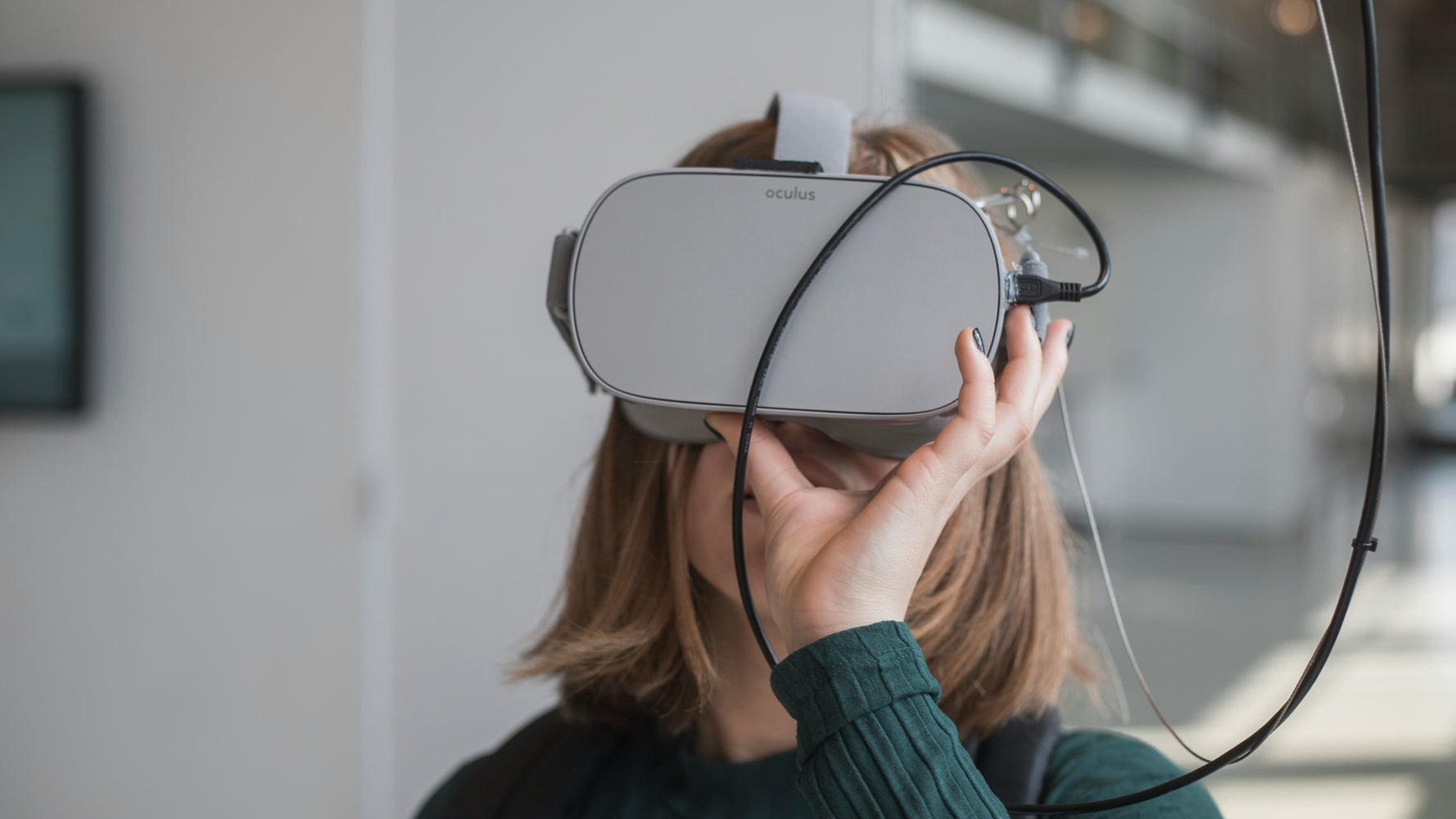Children have the most impressive imaginations – but is it normal for a child to question whether they’re living in reality? And how on earth can parents respond if they do?
The parent of an almost 10-year-old shared on Reddit that their son had asked them “how we know if we’re living in reality”.
Taking to r/Parenting, user Mid_Em1924 said (in a now-deleted post): “He has asked this before, and we’ve told him that we also wondered that when we were his age. He ended up sobbing because he is so worried about this.
“It’s concerning, and I’m wondering where this is coming from. He does play some games on his VR [virtual reality] headset. Any chance this is causing the confusion? Have any other parents had this issue?”
Other parents shared they’ve experienced similar concerns from their kids – and even remember questioning this themselves growing up.
The parent of an 11-year-old boy who had asked something similar said: “My response was ‘who cares since as far as we know, it’s our reality’. That seemed to satisfy him, but I’m guessing he’ll bring it up again soon.”
Another commenter added: “I’ve got a wild thinker too … I think just continuing to answer any questions and looking to educational resources when you don’t have the answers is the way to go.”
Is it common for kids to question reality?
Therapists think so. Both BACP-accredited counsellor Jenny Warwick and child psychotherapist Debbie Keenan say it’s common – especially around the ages of eight to 12 years old.
At this age, kids can become “quite existential”, Warwick told HuffPost UK, so parents might find themselves fielding questions about life, the universe and reality.
Keenan, who is a BACP senior accredited therapist, added: “Many children naturally wonder about what is real and what is not real as their imagination, reasoning, and sense of self expand. It’s amazing really, as it shows a healthy curiosity about the world and our place in it.
“If your child brings up questions like ‘How do I know any of this is real?’ or seems puzzled by whether something happened in real life or in a dream or video game, take a deep breath and don’t stress, you’re not alone, and this doesn’t necessarily mean there’s a problem.”
How can parents respond?
The therapists advise keeping calm and approaching the conversation with curiosity. Warwick suggested letting children know it’s OK to have these thoughts. “A relaxed and open response from you helps them feel safe to explore their questions,” she added.
You could ask your child open questions, like: “What made you start thinking about this?” or “How does it make you feel when you have these thoughts?” to gently explore what might be behind their curiosity or worry, suggested the counsellor.
Keenan suggested reading books together or watching age-appropriate programmes about the mind, perception, and how we know what’s real.
“From my experience, children this age can be fascinated in neuroscience, they absorb information on the hippocampus, prefrontal cortex, amygdala etc,” she said.
“There are lots of child-friendly videos on YouTube. If your child enjoys technology, you might even talk about how VR headsets can trick the brain, and how fascinating that is.”
It might also help to practice being present, as sometimes these questions can pop up when children feel a bit disconnected or spend lots of time in virtual worlds, added the psychotherapist.
“You can help anchor them by doing simple grounding exercises, or calm breathing together. One I recommend is the 5-4-3-2-1 grounding technique: name 5 things you can see, name 4 things you can touch, name 3 things you can hear, name 2 things you can smell and name 1 thing you can taste or are grateful for.”
If a child is a bit confused about what’s real and what’s not, Keenan recommended helping them sort it out. For example, you could say: “Yes, that dream felt really real, but here’s what’s actually happening right now…”
And if you find they’re using VR headsets a lot or spending a lot of time gaming, the therapist stresses the importance of building in regular breaks and balancing online activity with offline activities such as play, nature walks, and anything that engages their senses in the real world.
When to seek further support
If a child’s anxiety about what is real, and what is not, seems to be impacting their day-to-day life, experts advise reaching out for professional help.
“If your child seems to be stuck in distressing thoughts that are becoming persistent or intrusive, it may be a cause for concern,” said Warwick.
“You might notice signs that these thoughts are affecting their daily life, such as difficulties with sleep, attending school, or socialising or that these thoughts are leading to withdrawal, anxiety, or panic.
“If your child communicates that their fears are becoming overwhelming, or if you notice these thoughts preoccupying their mind, it’s important to pay attention.”
The counsellor suggested checking in with your child’s teacher to see if they’ve noticed similar behaviour at school. You could also reach out to a professional, such as a GP or counsellor, to explore further support.
Help and support:
Mind, open Monday to Friday, 9am-6pm on 0300 123 3393.Samaritans offers a listening service which is open 24 hours a day, on 116 123 (UK and ROI – this number is FREE to call and will not appear on your phone bill).CALM (the Campaign Against Living Miserably) offer a helpline open 5pm-midnight, 365 days a year, on 0800 58 58 58, and a webchat service.The Mix is a free support service for people under 25. Call 0808 808 4994 or email help@themix.org.ukRethink Mental Illness offers practical help through its advice line which can be reached on 0808 801 0525 (Monday to Friday 10am-4pm). More info can be found on rethink.org.
